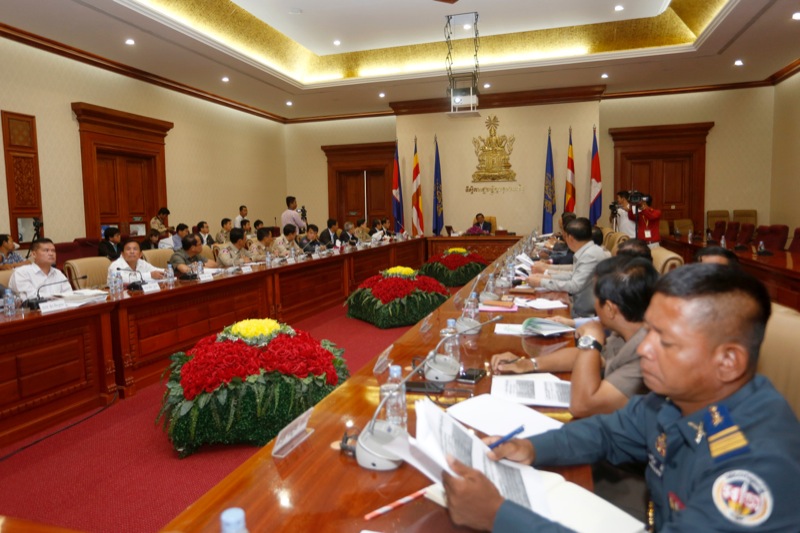A six-month crackdown on illegal fishing in the Tonle Sap lake region netted hundreds of thousands of meters of illegal gill nets and scores of batteries used in electrocution fishing, but not a single criminal charge in more than 1,500 cases, the government reported on Tuesday.
A report released by the Agriculture Ministry says officials foiled 1,553 cases of illegal fishing in the lake and its tributaries, seized 704,432 meters of illegal gill nets and 274 batteries used in eco-disruptive electrofishing methods.

In 42 cases, fishermen were fined for infractions, and 28,000 kg of live fish were released back into the wild, but no charges were filed, the ministry said.
Minh Bunly, the Tonle Sap program coordinator for the environmental NGO collective Fisheries Action Coalition Team, said the crackdown had been effective thanks to cooperation between the government’s task force as well as local and provincial authorities.
“If we compared these six months of illegal fishing with that of last year, it declined so much,” Mr. Bunly said on Tuesday. Last year, authorities reported 3,474 cases of illegal fishing and the confiscation of more than 1 million meters of illegal netting and 388 batteries.
But Huth Han, a representative of the Battambang fisheries community, said illegal fishing was still rampant in the inundated forest area in Ek Phnom district’s Koh Chivaing commune where enforcement efforts had yielded less success.
“It happens during the spawning season because it lacks law enforcement,” said Mr. Han, who urged more random policing efforts.
And Mith Soksopheak, chief of South Tonle Sap lake’s fisheries administration inspectorate, said illegal fishing remained an issue in some of Kompong Chhnang province’s Tonle Sap bottleneck areas, where some fishermen still use tightly wound nets to catch fish migrating to their spawning grounds.
“Illegal fishing usually happens at night when officials return to their stations,” Mr. Soksopheak said.
Prime Minister Hun Sen set up a national task force in December to quell the problem with depleted fish stocks in the lake, a critical fish breeding habitat. Commercial fishing is banned on the Tonle Sap between June and October of each year due to the fish spawning season.



